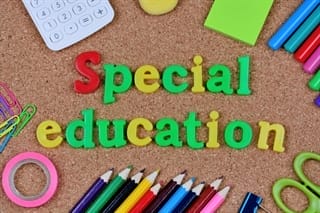All you have to do is spend 30 seconds on the Internet and you will find that right-to-work is the product of a union-hating, coordinated network of extremist, right-wing groups pushing some sort of nefarious payback to Big Business.
Special needs scholarships or vouchers, meanwhile, are some sort of far-right attack on small children and American values.
Except that recent polling in Wisconsin shows that there is nothing extremist about support for either. Quite the opposite.
Almost twice as many Wisconsinites (62%) say they would vote for right-to-work legislation as against it (32%). And as I’ve pointed out elsewhere in recent days, Republicans and independents are not the only ones in the majority. A majority of Democrats (54%) say they would vote for right-to-work as well, according to a WPRI poll conducted earlier this month. (Only 42% of Democrats say they would vote against it.)
You’ll find more information about poll results on right-to-work on our website. You’ll also find, though, that Wisconsinites aren’t nearly as polarized as many commentators would have you think on another high-profile topic: public support for private-school kids with special needs.
Callers administering the WPRI poll told respondents that “a proposal has been made that would give families of children with special needs in public schools a wider choice, by allowing them to enroll their children in private schools instead, with government helping to pay the tuition.”
The sort of proposal actually has been introduced repeatedly over the years in Madison, and state Rep. John Jagler of Watertown tells me that a version similar to the one he co-sponsored last year will be introduced again in the near future. Asked if they would support or oppose such a proposal, Wisconsinites proved themselves surprisingly in sync.
According to the WPRI poll, 62% of Wisconsinites somewhat or completely support such a proposal, while 27% are somewhat or completely opposed. And, once again, the support transcends party lines, at least in the dens and living rooms of Wisconsinites who don’t work in the state Capitol.
Support is particularly strong among Republicans. Fully 79% either somewhat or completely support such a proposal, while only 15% are somewhat or completely opposed. But Democrats in Madison who reflexively oppose the program might be more surprised to find out that a majority of their constituents – no matter how Democratic their districts are – are in favor as well.
Approximately 56% of Democrats are somewhat or completely in support, while only 35% are opposed. (The numbers for independents are similar to the numbers for Democrats.)
Support for vouchers should never be conflated with a dislike of public schools. Needless to say, there are many top-tier public schools in Wisconsin, and many of us have sent our children to them. But as I pointed out in a lengthy paper back in 2013, “How Wisconsin is Failing to Help Kids with Disabilities,” at least some parents of kids with special needs are unable to secure a public education they find appropriate for their child.
The current system of identifying and funding children with disabilities is failing too many children. IDEA money, what little is available, is not flowing the way it ought to. And far too many parents who are trying to use the open-enrollment system to place their child in a different district are being denied.
In sum, as I noted back then, students with disabilities in Wisconsin have unique and often complex talents, aptitudes and needs and — as any two human beings might — differ greatly from one to another. And yet, the law that is supposed to assure at least a modicum of federal funding often, essentially, recognizes them only as a group. This has led to a system that is in some respects well-intended but leaves many individual students without recognition, without the services they deserve and without the same chance to better themselves that is available to other children.
Even when the current system does work, moreover, there is simply too little money available for kids with special needs who can’t secure the education they deserve in the public school system.
This should change.
And it turns out that Wisconsinites of all political stripes agree.
Mike Nichols is president of the Wisconsin Policy Research Institute.





